Letter Reveals Iranian Translator Pantea Eqbalzadeh Committed Suicide
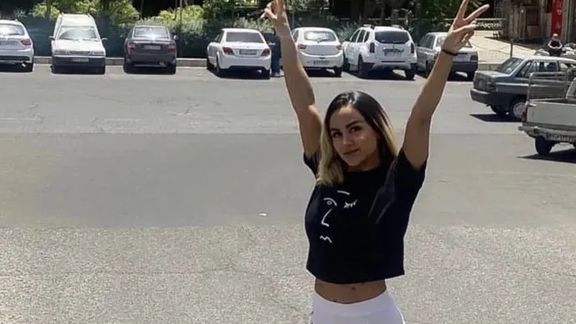
Following reports of the death of Pantea Eqbalzadeh, an Iranian translator of children's literature, a handwritten letter attributed to her says she committed suicide.

Following reports of the death of Pantea Eqbalzadeh, an Iranian translator of children's literature, a handwritten letter attributed to her says she committed suicide.
Twitter accounts published the letter of the young translator before her death, in which she wrote to her father that she no longer has "hope for the improvement of the situation in the country".
Pantea is the daughter of Shahram Eqbalzadeh, one of the prominent figures of Iranian children's literature.
Translations of The Longest Night by Marion Dane Bauer, Alligator Baby, Angela's Airplane, The Paper Bag Princess by Robert Munsch are among her works.
Meanwhile, on Tuesday, the US-based Human Rights Activists News Agency (HRANA) reported the suicide of a 39-year-old journalist from Dehdasht named Ali Sadeghi.
A source close to Sadeghi's family told HRANA that "Ali did this because of poverty and unemployment."
Iranian journalists, writers and translators have been under various political and economic pressures in recent decades. In addition to bans and censorship, job insecurity is the main reason for their dire economic situation.
Within the past nine months since the beginning of the nationwide "Women, Life, Freedom" protests in Iran, the suicide of a number of protesters after being released from prison has attracted a lot of attention on social media.
According to PEN America’s 2021 Freedom to Write Index, Iran jailed the fourth-highest number of writers and public intellectuals in the world. In 2022, arrests of writers and other artists have spiked dramatically.
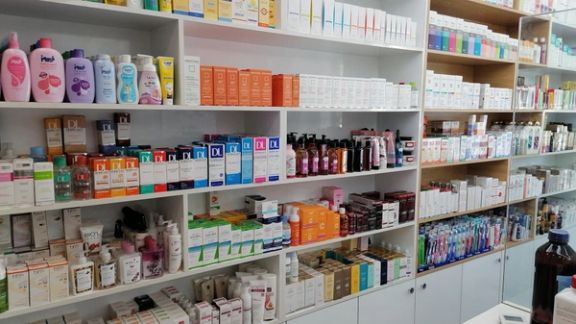
Shortages have hit Iran’s pharmaceutical industry which heavily relies on the cash-strapped government for hard currency to import raw materials.
The shortage of imported ingredients has disrupted production of medicines, pharmaceutical companies say and according to local media, around 200 different types of common medicines and drugs used by hospitals are scarce or unavailable now.
The situation was predictable and all government bodies including the ministry of health were aware that a shortage of medicine was to occur in the third and fourth months of the Iranian year which started March 21, Mohammad Abdzadeh, chairman of pharmaceutical companies’ union told the semi-official Mehr news agency Sunday.
Abdzadeh explained that it takes around four months from the time that the government provides the hard currency required for importing ingredients until the time the medicine become available in the market.

Donya-ye Eghtesad economic daily Monday quoted Hosseinali Shariari, chairman of the parliament’s health committee, as saying that he has written a letter regarding the shortage to Supreme Leader Ali Khamenei and “good news is being heard” about it.
Shahriari said there was a scarcity of around 180 different medicines, including those required for thalassemia patients and coagulation factor VII used to treat and prevent bleeding episodes in patients with Hemophilia A and B and that “and the list is getting longer.”
The media blame the government and the central bank for the shortage and its adverse effect on public health.
The government, which has been short of foreign currencies mainly due to US oil sanctions, has been exporting a lot more oil in recent months, nearly six times more than in 2019, at around 1.5 million barrels per day. However, Iran’s currency rial is near its all-time low and inflation remains high at more than 60 percent.
“How is that now after selling 1.6m barrels of oil per day, the government is unable to procure medicine like the previous government if it was so capable that it could import so much [Covid] vaccines when it came to office [in August 2021],” reformist Ham-Mihan newspaper asked Sunday, while pointing out that medicine is not included in the list of sanctions.
Many Iranians also wonder how the government is facing such a financial crisis if it is exporting around 700,000 more barrels of oil per day than in 2021.
“The psychological outcome of this situation is rising tension between people and the healthcare system, discontent with the government while its actual result is a decline in people’s life expectancy, particularly when [shortage of medicine] is coupled with food poverty which will definitely cause a drop in life expectancy,” the newspaper wrote.
Spokesman of Iran's customs said in November that the country had imported $2.8b of medicine and pharmaceutical ingredients in seven months.
While claiming that the country is producing 99 percent of its medicine requirements, the head of Iran's food and drug administration, Heydar Mohammadi had warned in February that the 690,000 billion rial budget (around $1.4 billion) allocated by the government for pharmaceuticals would only suffice for three months. According to Mohammadi, around 70 percent of ingredients for production of medicine must be imported.
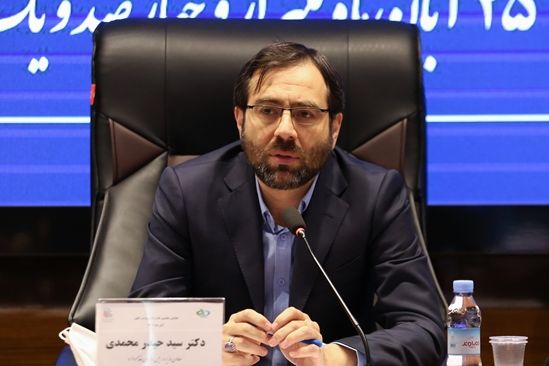
Claiming Sunday in an interview with the parliament’s news agency, that currently the situation is more “stable” compared to nine months ago, Mohammadi admitted that the slightest delay in providing hard currency could cause problems for the industry.
Officials including Mohammadi have also admitted that delay in payments by government agencies such as the welfare organization and insurance companies is also causing shortage of liquidity to pharmaceutical companies and affecting production.
In January an official of Iran’s drug importers union, Mojtaba Bourbour, challenged government officials’ claims about self-sufficiency in production of medicine and said not only up to 90 percent of raw material is imported from countries such as China and India, but also some medicines are imported from China but sold under Iranian labels.
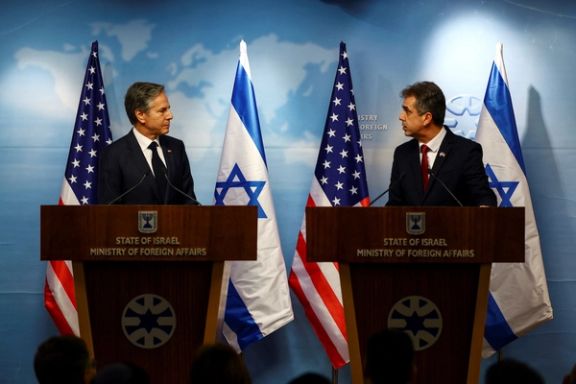
US and Israeli foreign ministers held a telephone call on Tuesday to discuss “Iran’s destabilizing behavior, among other issues, the State Department announced.
Secretary of State Antony Blinken and Israeli Foreign Minister Eli Cohen consulted over issues of Iran and “Israel’s integration into the region,” a possible reference to US efforts to expand the Abraham Accords by convincing Saudi Arabia to establish relations with Israel.
An announcement by State Department also said that “Secretary Blinken conveyed concern over the recent escalation of violence, which has directly affected US citizens in the West Bank, and underscored the need for parties to work further to further de-escalate the situation.”
Israeli media reported on Tuesday thatthe Palestinian Islamic Jihad (PIJ)is buying weapons and loyalty in the West Bank using Iranian money.
The PIJ has established several armed cells and recruited dozens of gunmen in the northern West Bank, specifically in Jenin and Nablus. “The PIJ has become a dominant force in the northern West Bank, largely thanks to the financial aid it receives from Iran," a source told Israel's Jerusalem Post.
Since March, the Iranian regime has intensified its support to Palestinian militant groups and has publicly urged them to attack targets in Israel. Tehran officials expressed gratification at a serious flare-up of violence in April and pledged more support.
Defense Minister Yoav Gallant announced Tuesday that Israel seized millions of dollars’ worth of digital funds intended for use by Iranian-backed Lebanese group Hezbollah and the Quds Force arm of the Revolutionary Guards.
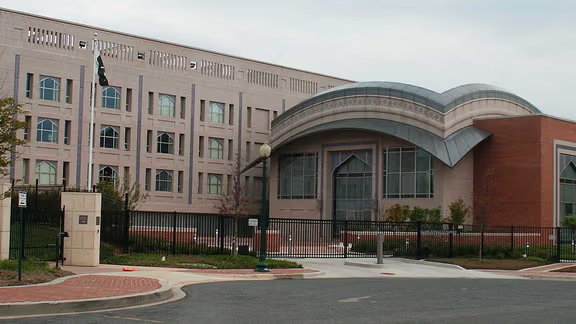
Iran’s Interests Section in Washington DC has been accused of corruption and one of its staff now faces prosecution.
A political activist has told Iran International that Manouchehr Jafarzadeh is being prosecuted for charging extra fees for consular services.
Activist Siamak Aram said personnel of the office ask for cash in return for consular services.
According to Aram, the investigations are underway to get more information about the illegal act by Jafarzadeh; however, there are possibilities of systematic corruption to conduct money laundering.
Earlier this week, Iran's chief justice claimed he is battling corruption in government bodies.
In a televised interview aired by the state broadcaster IRIB Wednesday evening, Gholamreza Mohseni-Ejei said he and the organizations under his supervision would never shut their eyes to corruption and infringements of the law, and in some cases their actions have upset the government of President Ebrahim Raisi and caused complaints.
Last year, the former chief of Iran's state television, Mohammad Sarafraz accused the government and banking system of systematic corruption that has led to vast income gaps among Iranians.
Sarafraz accused the IRGC and the intelligence agencies of “systematic corruption which is likely to land the country in deep trouble,” saying that most of what the intelligence agencies and the IRGC do in Iran are illegal, but they can get away with it as no one is in control. Meanwhile, none of these organizations assume responsibility for the instability their actions create.
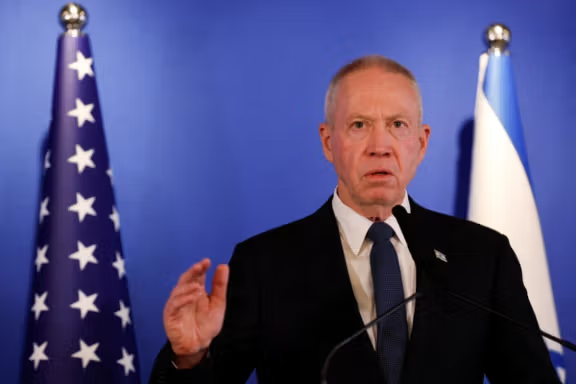
Israel has seized millions of dollars worth of digital funds intended for use by Iranian-backed Lebanese group Hezbollah and the Quds Force arm of the Revolutionary Guards.
Defense Minister Yoav Gallant made the announcement on Tuesday, revealing that Israel has seized digital wallets linked to IRGC and Hezbollah.
His ministry said that since the start of this year, "Hezbollah, Quds Force (IRGC’s extraterritorial force) and Syrian operatives have used digital currencies to receive funds from third parties via illegal transactions”.The Defense Ministry said it had also thwarted the transfer of millions of dollars to these operatives.
Speaking at a conference hosted by the ministry’s National Bureau for Counter Terror Financing (NBCTF), Gallant said, “I issued an order that enabled the confiscation of said funds, as well as their transfer to the State of Israel. In doing so, we have effectively cut off the flow of terror funds via this channel.”
“A few days ago, an extensive and precedent-setting operation — to expose a route for financing terror with digital currencies — was wrapped up. This is the first incident of this magnitude, in which an infrastructure led by Hezbollah and the Iranian Quds Force that transferred millions of dollars to be used by terror elements was thwarted,” he added.
He said that the NBCTF developed new tools with the Mossad spy agency, the IDF’s Military Intelligence Directorate, the Israel Police, and other bodies, in order to combat financing of terror groups using cryptocurrency.
Noting Iran’s involvement, he said, “Whoever finances terror, or maintains a financial relationship with terror operatives, must know that he is a target, just like anyone who directs terrorism."
“As you can see, this time too there is a clear line behind the terror [financing] moves that originate in Iran. Iran is the financier, trainer, and spreader of terrorism against Israel and many countries around the world, both directly and through its proxies at the borders,” Gallant said.
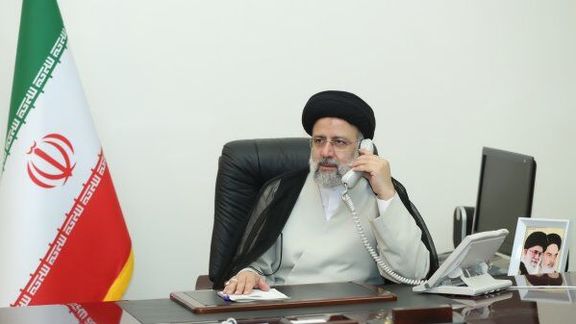
The Iranian President says developing ties with Qatar will boost regional and international cooperation between the two countries.
Ebrahim Raisi made the comments in a phone conversation with Qatari Emir Sheikh Tamim bin Hamad Al-Thani who had called to felicitate him on Eid al-Adha.
Raisi also appreciated the efforts of the Emir and Prime Minister of Qatar in advancing joint plans and agreements with the Islamic Republic of Iran.
Al-Thani congratulated the Iranian President and the Iranian people on Eid al-Adha and expressed willingness to boost economic cooperation.
Last week, European Union foreign policy official Enrique Mora and Iran’s chief nuclear negotiator Ali Bagheri-Kani held meetings in Qatar in what many believed to be related to issues pertaining to disputes with the United States.
Since September, the US has demanded an end to Iran’s weapons supplies to Russia that has included hundreds of Kamikaze drones used against Ukrainian military and civilian targets.
In February, US Special Envoy for Iran Robert Malley met with the Qatari foreign minister in Washington over efforts to kickstart the stalled talks to revive the 2015 nuclear deal, Qatari sources said.
Late in January, Al Thani visited Tehran where he delivered messages from world powers that are party to the Joint Comprehensive Plan of Action, particularly the US which does not have direct contact with the Islamic Republic.